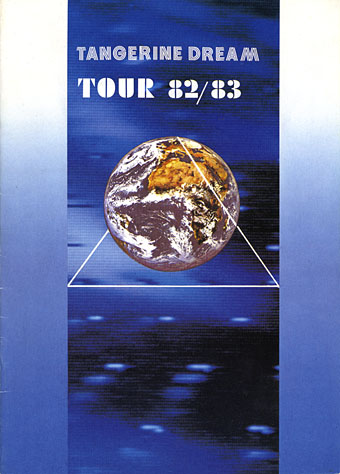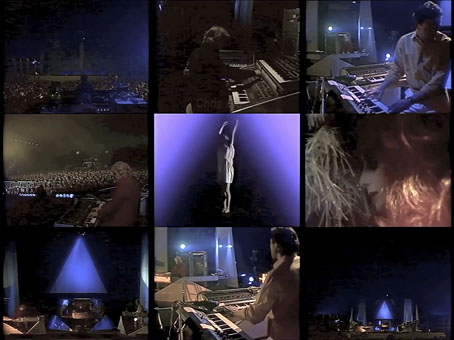The conjunction this month of the Sorcerer reissue and Celestite, the latest album from Wolves In The Throne Room, has had me listening to a lot of electronica from the 70s and 80s. This in turn led to the discovery of a Polish TV broadcast of the concert Tangerine Dream played in Warsaw on 10th December, 1983, the end of a lengthy world tour which included a date in Manchester on 1st November, 1982, that I was fortunate enough to see. Anyone familiar with the Johannes Schmoelling period of the group will probably know the Logos album, a recording of the concert played at the Dominion theatre, London, a few days after the Manchester gig. At this point the group was playing the same set (with minor variations) at each performance. The Poland event, by contrast, was a special concert taking place in what was still a part of the Soviet bloc for which the group composed over two hours of entirely new music. The full concert was documented on a double-vinyl set, Poland, released a year later, an album I used to play regularly, so it’s fascinating seeing the first half hour being performed here. Also good to see the Schmoelling line-up in action; there’s a fair amount of film of the group from the 1970s but this is the first substantial footage I’ve seen from the 1980s. The TV producers seemed a little confounded by how to present this unorthodox music, so between shots of the group there are cutaways to showroom dummies (shades of Kraftwerk), Polish street scenes, and a woman dancing around in a manner that seems hopelessly naive to a jaded Western viewer. The blue triangle stage set was a nod to the White Eagle album sleeve.

Tour programme.
Poland was the last Tangerine Dream album I enjoyed wholeheartedly. The final studio release with Schmoelling, Le Parc (1985), had some high points but was more like one of the soundtrack albums the group were producing in increasing numbers at the time. I saw them perform again in 1986 when Paul Haslinger had replaced Schmoelling and the concert sent me to sleep for a minute, after which I decided that it was time for Tangerine Dream and I to go our separate ways.


